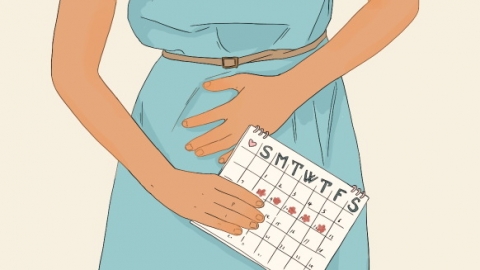Under what circumstances will menstruation stop?
Conditions that can cause amenorrhea include natural physiological menopause, endocrine disorders, organic uterine diseases, medication effects, and external environmental factors. Amenorrhea caused by different factors varies in symptoms and management approaches. If non-physiological amenorrhea occurs, or if amenorrhea is accompanied by abnormal bleeding or pain, prompt medical evaluation is recommended.
1. Natural physiological menopause: Women typically reach menopause between the ages of 45 and 55, when ovarian function naturally declines and follicles become depleted, leading to reduced estrogen production and cessation of menstruation. This is a normal physiological process, often accompanied by menopausal symptoms such as hot flashes and insomnia.
2. Endocrine disorders: Conditions such as polycystic ovary syndrome (PCOS) and hyperprolactinemia disrupt hormonal balance, suppress ovulation, and lead to infrequent periods progressing to amenorrhea. These are commonly associated with symptoms like hirsutism, obesity, and galactorrhea.

3. Organic uterine diseases: Conditions such as intrauterine adhesions, uterine fibroids, and endometrial cancer damage the normal structure and function of the uterus, interfere with endometrial shedding, and result in amenorrhea. These may be accompanied by abdominal pain or abnormal vaginal bleeding.
4. Medication effects: Long-term use of contraceptives, antidepressants, chemotherapy drugs, and others may interfere with hormone secretion or suppress ovarian function, leading to amenorrhea. In some cases, menstrual cycles may gradually resume after discontinuation of the medication.
5. External factors: Excessive dieting leading to rapid weight loss, prolonged intense exercise, severe psychological stress, or sudden environmental changes can disrupt the function of the hypothalamic-pituitary-ovarian axis, triggering amenorrhea.
Maintain regular sleep patterns and avoid staying up late; eat a balanced diet to ensure adequate nutrition, avoiding extreme dieting or overeating. Engage in moderate physical activity such as yoga or walking to help relieve mental stress. Pay attention to changes in your menstrual cycle, promptly identify abnormalities, and adjust lifestyle habits accordingly.




